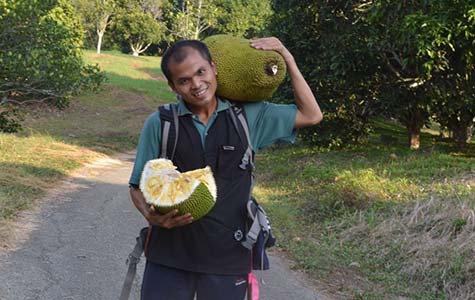
Although nearly 7,000 plant species have been cultivated at some point in human history for food consumption, approximately 95 percent of human food needs worldwide are met by about 30 crops. Shockingly, more than 50 percent of human food needs are met by only three of those crops: corn, wheat, and rice. Plant genetic resources are the basis for food security, and the diversity they encompass will be the fodder for adaptation to climate change and the stresses that may come with it. Realizing the potential of locally grown, underutilized perennial crops (which require less energy input than annuals) can reduce energy use in the agriculture sector and increase food security in vulnerable areas, many of which lie in the tropics. Genomic resources are a vital part of the toolkit for improving and broadening our agricultural base worldwide, yet very few genomic resources exist for underutilized crops. Breadfruit (Artocarpus altilis) is a staple starch crop that is a major component of many traditional agroforestry systems in the tropical South Pacific islands, and it compares favorably to major staples in both yields and nutritional content. Work in 2014 focused on assembling and analyzing transcriptome data from breadfruit and its wild relatives and revealed information about genes that may be under positive selection (Zerega, Wickett, and Laricchia).

